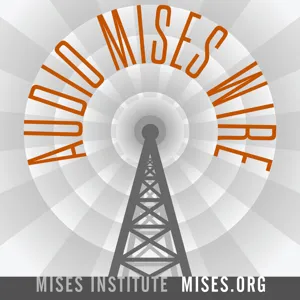Podcast Summary
Capitalism vs Socialism: Both capitalism and socialism have their strengths and weaknesses, and the choice between them depends on which system better promotes human welfare without violating people's rights.
Learning from David Gordon's "If One Wishes to Discredited Capitalism, One Should at Least Understand How It Works" is that both capitalism and socialism, as systems, have their strengths and weaknesses, and the choice between them ultimately comes down to which one better promotes human welfare without violating people's rights. The author, Scott Cihan, argues for socialism based on its potential to promote greater human welfare through collective ownership and control of the means of production and equality of distribution or redistribution of wealth. However, he acknowledges the difficulties in implementing such a system without infringing on individual rights. Similarly, defenders of capitalism argue that it promotes human welfare through private ownership of the means of production. Ultimately, Cihan presents these as the "master arguments" for each system, and the book primarily focuses on analyzing these arguments.
Worker exploitation in capitalism: The ethical permissibility of wage bargains in capitalism is debatable, with opinions varying based on individual beliefs and philosophies, such as utilitarianism and respect for worker dignity.
While some argue that capitalist employers exploit workers by extracting more value than they pay in wages, this does not necessarily equate to an unjust situation. The ethical permissibility of such wage bargains depends on individual beliefs and philosophies. For instance, a utilitarian might find it acceptable due to capitalism's productivity, but may still view the pressure put on workers as a violation of their dignity. Conversely, others might argue that workers earn less than the value of their labor, but this assumption is not supported by most modern economic theories, which consider labor as just one of the three factors of production. Ultimately, the question of worker exploitation in capitalism is complex and a matter of ongoing debate, with reasonable people holding differing opinions.
Worker's cooperative and profit: In a market system, even a worker's cooperative must allocate income shares to factors like land and capital, and the distribution of gains from these factors is a separate issue from the validity of the assumption of profit coming from surplus value.
The assumption of profit coming from surplus value is a valid perspective, regardless of whether one agrees with subjective theory or not. This concept can be better understood by examining a worker's cooperative in a market system, which also needs to allocate income shares to factors like land and capital. The distribution of gains from these factors is a separate issue. Sihan criticizes him for a flawed interpretation of Friedrich Hayek's argument. Hayek's point was not just that markets use more information for decision-making than democratic economies but that economic resources cannot be allocated rationally without market prices. The amount of information required to coordinate a complex economy is so vast that central planners would be unable to accomplish the task at all. Sihan missed this core argument.
Price Mechanism and Resource Allocation: According to Hayek and Mises, the price mechanism is essential for effective resource allocation in economic systems. Without market prices, rational resource allocation becomes impossible, leading to chaos.
According to Hayek and Mises, the use of prices is crucial for effective resource allocation in economic systems. They argue that without market prices, as in a centrally planned economy, rational resource allocation becomes impossible, leading to chaos. Hayek's criticism of market socialism, which uses prices to a limited extent, also needs to be addressed. Despite this, C. Hunt's comparison of socialism and capitalism omits this discussion and Seon's bibliography lists Mises' works on the calculation argument but fails to acknowledge its significance. Mises is often revered by libertarians for his arguments against socialism and his emphasis on the role of prices in economic systems. However, it's important to note that both Hayek and Mises were criticizing central planning, not all forms of socialism. C. Young, who presents himself as a logical teacher on the topic, could benefit from further study on these arguments. For more in-depth analysis, visit mises.org.

